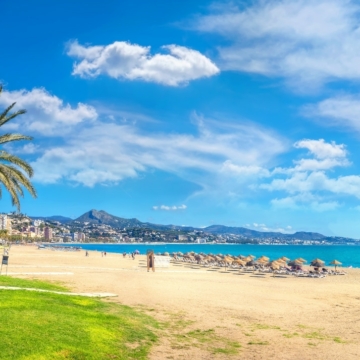looking to buy a home?
Submit this Form and Benefit from our 25 Years' Experience & Strong Local Network.Once you’ve made the decision to buy property in Spain you’ll need to open a bank account. Not only can you use this account to transfer money for the purchase, but to pay bills and taxes by direct debit once you own the property. In this article, we offer some tips on which bank to choose and look at how to open a bank account.
Choosing a Spanish bank
Your first step is to choose your bank. Numerous financial entities operate in Spain, mostly Spanish such as the giants Santander, Banco Sabadell, CaixaBank, but also branches of foreign banks like Deutsche Bank. When deciding which one to open an account with, bear in mind the following:
Do they speak your language?
If you don’t speak Spanish, choose a bank where the staff speak your language. This also applies to the website and online and telephone banking services.
Do they have a good range of branches and ATMs?
Unless you open an account with an online bank, you will probably want a bank with a branch near your property. The same applies to ATM cash machines. Although card payments are widely accepted throughout Spain, cash is still useful for small transactions and in the occasional business where you can’t pay by card. Choose a bank with a branch near you and an ATM.
Do they offer online and mobile app banking?
All banks offer online banking – useful when you’re not in Spain and need to use your account – but not all provide the service in a language other than Spanish. If you like banking via a mobile phone, have a look at the app for your chosen bank and see if it suits your needs.
What are their fees?
Spanish banks are notorious for charging fees and commission. These range from an annual (or monthly) fee for your account to commission charged on transfers. Banks also charge annual fees for debit and credit cards and there’s often a fee for cash withdrawals from ATMs that don’t belong to the same banking network. It therefore pays to shop around to find the bank that charges the least.
Practicalities of opening a bank account in Spain
Depending on your status in Spain, you can open a non-resident’s account or a resident’s account. If you are not officially resident in Spain you cannot open a resident’s bank account, but it’s easy to convert from one to the other should you become resident later on.
Non-resident’s bank account
Most banks offer this type of account. To open it, you need to provide the following:
- Proof of identity in the form of a passport or national ID card (a driving licence is not valid).
- Proof of address outside Spain (e.g. a utility bill in your name, rental contract or title deeds for your home).
- Proof of your occupation or status (i.e. employed, student or retired).
- A certification of non-residence. You can obtain this from a police station in Spain or ask the bank to do it (they will probably charge a small fee for this).
Resident’s bank account
If you’re officially resident in Spain, you need the following documentation to open an account:
- Proof of identity in the form of a passport or national ID card.
- Proof of Spanish residency and a copy of your NIE (foreigner’s identity number).
- Proof of your Spanish address such as a utility bill, title deeds or rental contract.
Opening an account
Many Spanish banks allow you to apply for an account online. You simply fill in the application and upload the required documentation. You then need to go to the bank in person to sign the paperwork.
Need to know about Spanish banks
Bank account details
All Spanish bank accounts have 20 digits. For transfers you’ll need the IBAN – the letters ES followed by 2 digits and your bank account number. International transfers require the SWIFT code of your bank.
Spanish bank opening hours
Banks typically open Monday to Friday between 8.30am and 9am to 2pm or 3pm. Some banks open until 5pm or 6pm one or two afternoons a week. Banks do not open at weekends nor on public holidays.



